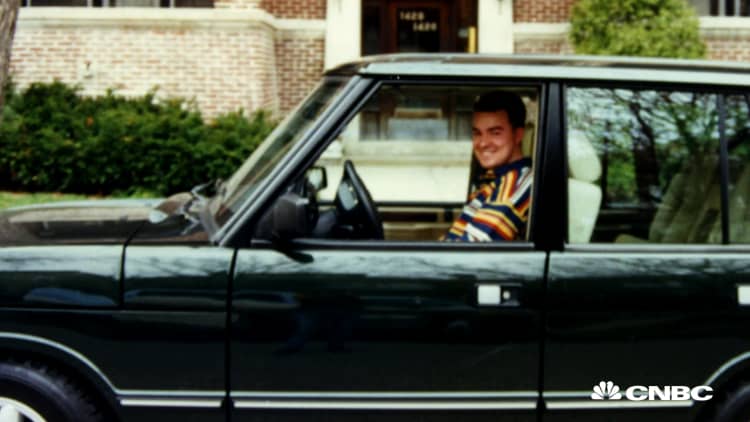Roger Jin was 14 when he first decided to be an entrepreneur. He accelerated his college coursework and moved directly to Silicon Valley, where he crashed on a friend's couch and launched his first start-up. After that first start-up failed, he worked a couple of jobs. Then he launched Treats, the subscription, mail-order international snack service that made him rich.
A year and
Now, in an Ask Me Anything on
How did you know you should quit your job and launch Treats?
Before I quit my job and started Treats, I was also at a crossroads. I was comfortable in my previous job, but I realized I was getting too comfortable. One day I decided to just hand in my notice so that I could put my full attention into starting a new venture.
Personally — and I may be the exception rather than the norm in this case — I've always been dead-set on starting a business as soon as I could. It was arguably a bit reckless, wouldn't recommend it for everyone!
Were you worried about health insurance?
When I first started the business I was able to get coverage through the Medi-Cal program in California and knowing that helped me with taking that first step.
Where did your first inventory come from?
I was not 100 percent confident I would be able to sell them all and that gave me some apprehension. However, at that point, given that I had limited capital and no 'back-up' to fall back on, I felt I had no other choice but to put my fears aside and proceed!
One of my favorite sayings is 'chase the dream not the competition.' As a result, I honestly don't pay much attention to the competition.Roger Jinfounder of Treats
How did you get your first customer?
I got my very first customer by posting an announcement in my high school's Facebook Group. I went to an international school in Shanghai, China, and felt my classmates in the group might have the same inclinations as I did (in terms of wanting to eat foods from their childhoods in Asia even though they might live elsewhere now).
SnackCrate and World of Snacks offer similar products. How do you feel about your competition?
I frankly don't have anything bad to say about competition and I have a lot of respect for them as fellow entrepreneurs on the entrepreneurial path. One of my favorite sayings is 'chase the
What's your favorite international snack?
Happy Hippos by Kinder! They're great on their own, but even better when frozen (in my opinion).
What was the biggest mistake you made?
In hindsight (and if I could do it again) I would grow the business slower and manage the growth rate. What I didn't realize was that with
How many hours do you work?
When I first started I was probably working about 80
Is it hard to have a relationship when you are launching a start-up?
When I started the business I was not in a relationship at the time, and I think being single (and only accountable to myself) helped tremendously because I was able to focus 100 percent of my daily attention on creating, nurturing and growing the business.
Overall I think having a relationship and starting a business can very likely clash, because of the time commitment and energy required to start a business (which may take away from your significant other), but I also think the level to which it affects comes down to the couple and how well they understand, communicate, and are on the same page with each other.
What kind of college degree do you have?
I can honestly say that my [bachelor's degree in finance] has played little to no role in my career or work related skills up to this point — most of the things I encounter on a daily basis are entirely different from what I learned in school. In my
I can honestly say that my degree has played little to no role in my career or work related skills up to this point.Roger Jinfounder of Treats
How hard was it starting the company by yourself?
It wasn't as hard as you may imagine — the main thing about starting a company by yourself is you are now completely accountable only to yourself, and that means you have to personally take on the responsibility to do what you need to do (for any tasks that come up) and learn what you don't know. As an
Did you already know how to build a website?
I had previously learned how to design a website but I did not know how to code it. What I did in this instance was I designed the website first, then I contracted a developer to turn my designs into code!
Why are you sharing this business plan, do you want competition?
I don't think I'm sharing anything that would jeopardize my business plan. What I'm sharing is my story, which I hope will help or inspire others out there. Even if I received more competition as a result of this post, there's a huge amount of hard work required to start and grow a business and success is not guaranteed.






